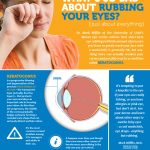[bs_row class=”row”]
[bs_col class=”col-sm-8″]
IS WEIGHT LOSS THE BEST MEASURE OF IMPROVING HEALTH OR CAN WE BE “FAT AND FIT”: A PARADIGM SHIFT
Current popular belief is that being overweight or obese is the greatest risk to our health. In accordance, weight loss has been considered the answer to the myriad of chronic diseases we as a society face today. The view that excess weight is the origin of many of these health issues is challenged by Dr. Glenn Gaesser in his article “Fitness versus Fatness: Which Influences Health and Mortality Risk the Most?” which was published in the journal of Current Sports Medicine Reports last summer. The article focuses on data from the past few decades that show cardiorespiratory fitness to be a better predictor of the development of chronic disease and all-cause mortality in comparison to what we use on a regular basis (BMI or body mass index and weight status).
We tend to view weight as the cause of chronic disease, and Gaesser highlights that the research does not support this concept. He explains that unhealthy lifestyles, including physical inactivity and poor nutrition, are what truly drive the development of chronic disease, and that the development of overweight and obesity is just often the result. Research on weight status and weight loss does not offer support for the concept that weight is responsible for our current struggle with chronic disease. Rather, it seems that the majority of people who do achieve weight-loss goals not only gain their weight back within a few years, but also do not decrease their overall risk of chronic disease. This is exemplified in Weight Cycling or Yo-Yo dieting, the process in which strict dieting helps a person achieve weight loss, followed by a regaining of the original weight and oftentimes more. These episodes of significant weight loss and weight gain, which are often the result of many of the “fad diets” advertised in the American media, are actually associated with increases in the risk of development of chronic disease.
Conversely, Gaesser points to the wide spread evidence in the literature that increasing cardiorespiratory fitness is the most effective method to decrease the risk of chronic disease. He also speaks to the effectiveness of a “heart healthy” diet, a diet high in fruits and vegetables and whole grains, in decreasing risk factors. The most amazing aspect of this evidence is that the positive effects of exercise on our health status are seen, whether or not weight loss is achieved. The article cites conclusive research that shows a higher level of cardiorespiratory fitness, regardless of weight, is directly related to a lower risk of chronic disease.
The ability for people to increase cardiorespiratory fitness without losing weight, or being “fat but fit,” and still significantly decrease their risk of chronic disease and mortality is a powerful notion.
Weight loss is attempted by close to half of the United States population each year. Success, especially in the long-term, is very poor, while we continue to see an alarming number of individuals suffering from chronic disease. It’s time to shift the focus away from weight loss and towards the promotion of healthy lifestyle choices. It’s time to transform our approach into one rooted in the concept of physical activity and informed nutrition not only being the most valuable pieces in the achievement of good health, but also essential to its preservation and sustainment.
Gaesser, G. A., Tucker, W. J., Jarrett, C. L., & Angadi, S. S. (2015, July). Fitness versus Fatness. Current Sports Medicine Reports, 14(4), 327-332.[/bs_col][bs_col class=”col-sm-4″][bs_well size=”lg” ]
DON’T RUB YOUR EYES

Who knew that rubbing your eyes is one of the worst things you can do to those precious orbs? Here’s why.
HAVING A HEALTHY WEIGHT LOSS LOWERS THE RISK OF MORE CANCERS

People who are overweight or obese are at higher risk for more cancers than previously thought, says a report published in the New England Journal of Medicine Aug. 25, 2016. The International Agency for Research on Cancer (IARC) brought together a group of 21 researchers from around the world to look at more than 1,000 studies linking excess body fat and cancer.
The full article can be found here.
For more expert health news and information, visit healthcare.utah.edu/healthfeed.[/bs_well][/bs_col]
[/bs_row]

